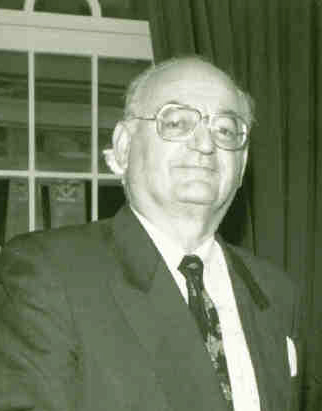In Memoriam Lips

Ferdinand Lips 1931-2005
Ferdinand Lips, who passed away last month in his native Zurich, was a strong supporter of The Golden Sextant and a personal friend of its editors. Indeed, the website takes its name from its founder’s essay of the same title which won the first Bank Lips AG International Currency Prize in 1992, making Ferdi in a sense godfather to our online effort to promote sound constitutional money based on gold.
Health concerns prevented Ferdi from traveling to Dawson City last August for GATA’s Gold Rush 21, but his speech under the title Three Revolutions, delivered by his friend and partner J.P. Schumacher, proved for many the highlight of the conference. Sadly, it now stands as his valedictory, but a finer one he could not have given. Nor can we add much to the marvelous tribute to Ferdi written by this same friend.
Widely regarded as the “Pope of Gold,” Ferdi was known more familiarly as “Gold Ferdi” to Karl Otto Pohl, former head of the Bundesbank when it served de facto as Europe’s central bank. Ferdi seemed proud of this moniker, perhaps because underneath the surface ridicule he detected grudging respect of the sort encapsulated in Don Corleone’s injunction to his son Michael: “Keep your friends close, but keep your enemies closer.”
That the author of Gold Wars should have been taken from us just as the gold price-fixing cabal led by the central banks is about to meet its Waterloo brings to mind the opening lines of Walt Whitman’s famous tribute to Abraham Lincoln:
O Captain! My Captain! our fearful trip is done;
The ship has weatherd every rack, the prize we sought is won;
The port is near, the bells I hear, the people all exulting,
While follow eyes the steady keel, the vessel grim and daring…
But in the markets as on the battlefield, winning the war does not guarantee an enduring and satisfactory peace. The collapse of the 1960’s London Gold Pool and the closing of the U.S. gold window in 1971 were market victories for gold. Yet far from producing a reconstruction of the international monetary system linked to gold, the demise of the post-World War II Bretton Woods agreements resulted in floating exchange rates among unlimited paper currencies.
In Ferdi’s eyes, as he reaffirmed at Dawson City, the consequences have been largely tragic: multiple wars unaffordable under a gold standard and the impoverishment of millions through monetary shenanigans possible only under a regime of unlimited paper. He predicted that gold’s next great rout of fiat would be even more smashing than its last, but he worried that this impending monetary hurricane would leave worldwide catastrophe in its wake unless gold is swiftly restored to its rightful place as the international monetary numeraire.
Ferdi pointed the way forward, and now we — his friends and disciples — must carry on with the task to which he devoted most of his professional life. The finest tribute that could be erected to our hero’s memory is a future and better world in which the term “Gold Ferdi” will refer not to the man — but to a coin in honor of the man — who during the difficult days of unlimited paper nobly reigned as the Pope of Gold.
